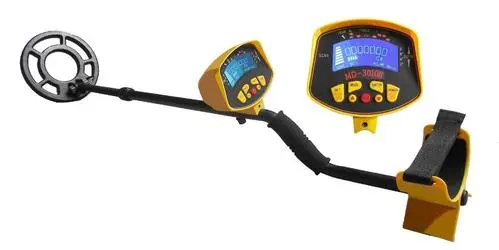
Bluetooth technology has made it possible to connect headphones using Bluetooth, as well as other Bluetooth devices such as a Bluetooth dongle. This technology has proven to be very useful in metal detectors since it allows for extensive wireless technologies. With earphones, users can now detect metal even when they are far away from the detector itself. Furthermore, art metal and other types of metallic objects can be detected due to the use of this technology.
Bluetooth modules are also useful in specialized metal detectors, as they are able to detect objects at specific depths. In addition, the software features of these modules allow for professional uses such as detecting small objects that may not be detected by standard metal detectors. Bluetooth modules can also detect electromagnetic fields (EMF) which help to sort and add additional features to the detection process. Thus, Bluetooth module technology has become an important addition for metal detectors in order to provide more efficient and accurate detection results for a variety of different types of objects.
The application of multiple Bluetooth detectors allows the detector to beep when it detects any metal object, even trace minerals like zinc. The search coil on the metal detector picks up signals from nearby objects and sends them to the Bluetooth module, which then interprets these signals and transmits them back to the headphone for detection. In addition, this technology also provides greater accuracy in detection by allowing users to adjust signal strength based on proximity of a metal object as well as its size. This makes it easier for people to detect small objects close by or larger ones farther away. Key applications include treasure hunting, surveying areas for metallic content, security screening and more.
A metal detecting robot is an automated robot designed to detect metal objects. The detection data is then sent wirelessly to a computer or other device via Bluetooth for further analysis. The use of wireless Bluetooth technology has revolutionized the metal detecting industry, allowing for remote control and operation of metal detectors, which previously had been limited to manual operation. The use of a metal detector system offers several advantages over the traditional method of using handheld devices. One advantage is that it can be used in areas not easily reached by humans due to its mobility and range. Another advantage is that it can detect objects that are too small or deep for manual detectors to detect, such as coins buried in soil or hidden underneath debris. Furthermore, the use of a robotic vehicle allows for faster and more accurate object detection as well as easier data collection and storage due to its automated nature. One company recently launched a successful Kickstarter campaign featuring a wireless Bluetooth-enabled robotic vehicle with features specifically designed for object detection such as sensitivity control, adjustable trigger distance, variable frequency selection and more. Their design includes two high-quality sensors capable of detecting objects from up to 25mm away with accuracy within 1 mm when placed at different angles around the vehicle’s base frame.
Bluetooth technology is used to transmit data between the detectors and other devices. The Bluetooth mode enables two or more devices to communicate with each other using wireless data transmission. In a metal detector incorporating Bluetooth technology, the disable Bluetooth function prevents the detectors from sending out wireless signals when it is not needed. This reduces interference in the 12 lanes of vehicle detection, thus providing improved data exchanges over a wide area. Furthermore, an od matrix can be installed to detect objects at different points within its range and send out information about them wirelessly to another device or system. The use of this technology allows for real-time monitoring of any changes in the environment where metal detection is necessary, such as airports and ports.
ecosystem. As such, it is no surprise that Bluetooth module remains as one of the key components in today’s Smart Home products.
As a professional manufacturer of Bluetooth modules, Tecksay has independently developed and produced a number of Bluetooth modules that have been applied to many industries. With more than ten years of industry experience, Tecksay can customize Bluetooth module embedded solutions for customers from design, project management, function customization, system development and other aspects.



